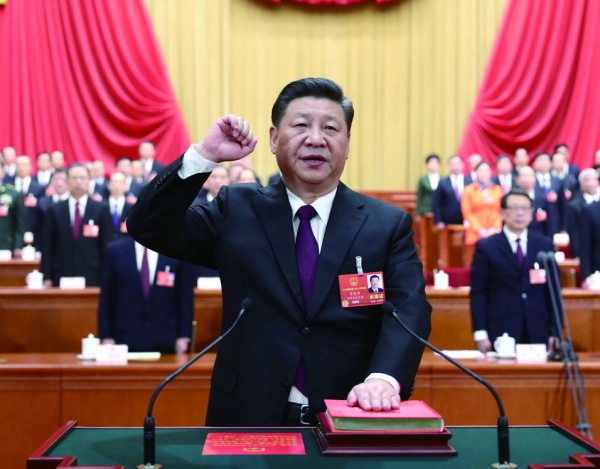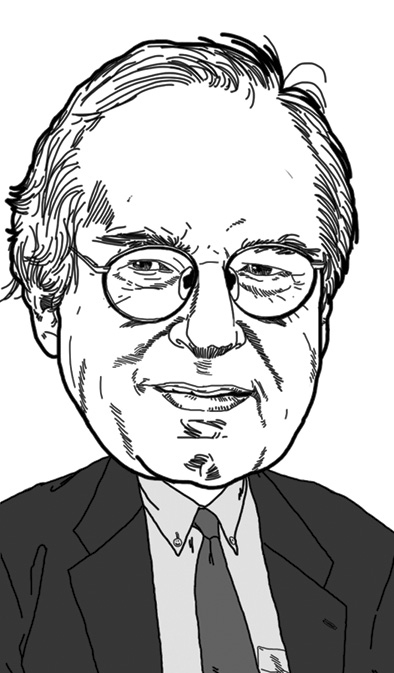약 30년 전 북경 천안문 광장의 대규모 시위 정신은 마침내 중화인민공화국에서 민주주의, 진정한 민주주의가 가능해 보였던 그 영광스러운 몇 주 동안의 기억을 되살리는 운동으로 살아 있다.
나는 그 시간을 똑똑히 기억하고 있다. 작은 시위가 뉴욕 항구의 자유의 여신상 앞에서 수십만 명이 광장을 가득 메운 대규모의 시위로 변할 당시 나는 천안문 광장에 있었다. 사람들은 BBC와 미국의소리방송(VOA)을 듣는 것에서 영감을 많이 얻거나 적어도 그들의 정보를 얻었다고 자유롭게 말했다. 그렇게 해야만 그들은 세계의 사정을 알 수 있었다. 중국의 국가 선전기구인 인민일보의 지면이나 라디오와 TV 방송 등은 상황을 잘 알지 못하게 하거나 잘못 알려지게 하는 데 최선을 다했다.

30년 전인 1989년 6월 4일. 탱크가 천안문 광장으로 진입하고 민주주의의 꿈이 적어도 1000명, 어쩌면 더 많은 사람들을 학살하는 과정에서 폭발했다. 그 이후 중국 당국은 천안문에서의 학살에 대한 모든 언급들을 삭제하고 지우기 위해 노력해왔다.동시에 민주주의 지지자들은 매우 검열된 참고자료, 중국 밖의 모임, 문학, 뉴스 보도를 통해 그 기억을 살려둔다. 그들은 항상 시진핑 주석 하에서 집권 공산당과 중앙정부를 포함한 정권에 대해 부정적이거나 비판적인 것으로 보일 수 있는 모든 것을 찾는 일종의 사상을 검증하는 경찰로 구성되는 검열관들의 손길이 미치지 않는 길을 찾아야 한다.
중국 경제는 천안문 광장에서 몇 주간의 시위 기간 동안 당국을 감히 반대했던 지도자와 운동가, 그리고 핫헤드(광적인 사람들)를 뿌리 뽑은 어두운 시기 이후 엄청나게 성장했다. 어떤 이들은 수감되었고, 어떤 이들은 그들이 기소된 재판 후에 사형되었으며, 불가피하게 확립된 질서에 반하는 범죄를 저질렀다고 밝혔다.
놀랍게도 중국은 몇 주간의 시위 전후에 덩샤오핑 체제하에 반체제 인사들을 살해하고 검거하면서 덩샤오핑은 경제 개혁을 필요로 했고, 중국의 진정한 지도자로 있어야 했다. 그러나 덩샤오핑은 그가 옹호해 온 개혁 정신에 의해 그들의 지도자들이 크게 동기부여를 받았음에도 불구하고 시위대를 심하게 방어하지는 않았다. 덩샤오핑의 속마음은 헤아리기 어려울지 모르지만 정치개혁이 늦추어지는 동안 2,3년 경제개혁을 추진할 수 있었다.
중국은 오늘날 덩샤오핑에 의해 촉발된 활기찬 자본주의와 같은 형태를 간직하고 있으며 신흥 민주주의 운동의 모든 징후를 억제하고 있다. 당국은 천안문 정신을 박멸하고, 그곳에서 일어난 일에 대한 언급을 금지하고, 난해한 언급들을 걸러내기 위해 최선을 다했다. 5월 35일, 5월 31일에 4일을 더한 날짜, 즉 6월 4일, 로마숫자 6인 VIIV와 같은 코드 워드는 6월, VI, 4일, 즉 6월 4일이 금지된다.
어쨌든 천안문 이후 30년 동안 시 주석 하에서 중국은 덩샤오핑에 의해 예언된 제한된 자유 이전의 과거 독재 체제로 되돌아갔다. 중국의 경제, 여러 면에서 자본주의는 분명히 시 주석과 공산당의 손아귀에 있다. 그래서 급격한 중국의 군사력을 통해 가장 극적으로 남중국해에 작은 섬과 암초들에 군사기지를 세우고 본토의 군사력을 확장했다.
민주개혁의 틈새에 얽매이지 않는 공격적인 군사력의 부상은 미국뿐 아니라 중국 주변국에도 적지 않은 경각심을 불러 일으키고 있다. 그러나 중국의 대미 무역흑자 및 나머지 대부분의 나라들로부터 많은 흑자를 내기 때문에 시 주석은 황금알을 낳는 거위를 죽이고 싶어 하지 않는다.
중국의 강세는 미국과 유엔의 제재에도 불구하고 석유, 식량, 기타 생산품을 중국에 의존하고 있는 북한에 큰 영향력을 행사한다는 것을 의미한다. 동시에 중국은 무역적자가 있는 반공 ‘민족주의’ 정권인 대만과 함께, 한국이 몇 안 되는 곳 중 하나임에도 불구하고, 한국의 가장 큰 무역 상대국으로 남아 있다.
시진핑의 중앙집권적 정책은 천안문 시위의 실패를 보여준다. 30년이 지난 지금 공산독재는 세계를 위한 신호탄으로 짧게 빛난 자유의 여신상 앞에서 매일 밤 수만 명의 시위대가 이룩한 모습보다 훨씬 강력한 중앙정부의 지시를 받는다.
<번역 미래한국 편집부>
Tiananmen Square Protest in Beijing Is Remembered as Dream of Reform Turned into Dictatorship Under Xi
The spirit of mass protest on Tiananmen Square in Beijing some 30 years ago lives on in a movement to resurrect the memories of those glorious few weeks when democracy, real democracy, seemed possible at last in the People’s Republic of China.
I remember that time clearly. I was on Tiananmen Square as small protests grew into massive outpourings in which several hundred thousand people filled the square before an image of the Statue of Liberty in New York harbor. People freely told me they derived much of their inspiration, or at least their information, from listening to BBC and the Voice of America. Only that way could they know what was going on in the world while China’s own state propaganda machine, on the pages of the People’s Daily and in radio and TV broadcasts, did its best to keep them ill-informed or misinformed.
It was 30 years ago, on June 4, 1989, that tanks rolled into Tiananmen Square and the dream of democracy exploded in the slaughter of at least 1,000 people, perhaps many more. Ever since, Chinese authorities have been trying to expunge the memory, to delete, to erase, all references to the massacre on Tiananmen.
At the same time, pro-democracy adherents keep the memory alive in highly censored references, in gatherings outside China, in literature and news reports. Always they have to find ways to go beyond the reach of censors who form a kind of thought police, vigilant in spotting anything that might be seen as negative or critical of the regime, including the ruling Communist Party and the central government all under President Xi Jinping.

The Chinese economy has no doubt expanded immensely since those dark days when authorities, in the weeks after driving the protests from Tiananmen Square, rooted out their leaders, activists, and hotheads who had dared oppose them. Some were imprisoned, others executed after show trials in which they were accused and inevitably found guilty of perpetrating crimes against the established order.
Incredibly, China during the weeks of protest and then the killing and round-up of dissidents remained very much under the influence of Deng Xiaoping, who had inculcated much needed economic reforms and was in ways the country’s real leader. Deng’s instincts did not extend, however, to defense of the protesters even though their leaders were motivated to a large degree by the reformist spirit that he had espoused. Deng’s innermost thoughts may be difficult to fathom, but he was able within two or three years to go on promoting economic reform while political reform was harshly repressed.
China today retains an impression of vibrant capitalism as spurred on by Deng while suppressing all signs of a renascent democracy movement. Authorities have made a special point of doing their utmost to eradicate the spirit of Tiananmen, to ban mention of what happened there and to weed out abstruse references. Code words like May 35, for May 31 plus four, that is, June 4, and VIIV, Roman numbers for the sixth month, VI, and the fourth day, IV, that is, June 4, are banned.
If anything, three decades after Tiananmen, China under President XI has reverted to the dictatorship of a bygone era before the limited freedom propounded by Deng. China’s economy, capitalist in many respects, is clearly under the thumb of Xi and the Communist Party. So too China’s growing military power is seen most dramatically in construction of bases on islets and reefs in the South China Sea and an increase in military strength on the mainland.
The rise of an aggressive military establishment, unfettered by the niceties of democratic reform, has quite alarming implications for the countries on China’s periphery as well as the U.S. However, China’s trade surplus with the U.S. and most of the rest of the world is so enormous that Xi has no desire to kill the goose that has been laying all those golden eggs.
China’s burgeoning strength means that it has huge influence over North Korea, which relies on China for oil, foodstuffs and other products despite U.S. and UN sanctions. At the same time, China remains South Korea’s biggest trading partner even though the South is one of the few places, along with Taiwan, island home of the anti-Communist “nationalist” regime, with which it has a trade deficit.
The centrally directed policies of Xi Jinping show the failure of the Tiananmen protest. Three decades later, Communist dictatorship is far stronger, more centrally directed, than it was when tens of thousands of protesters carried on night after night before an image of the Statue of Liberty that shone too briefly as a beacon for the world.
외부게재시 개인은 출처와 링크를 밝혀주시고, 언론사는 전문게재의 경우 본사와 협의 바랍니다.


